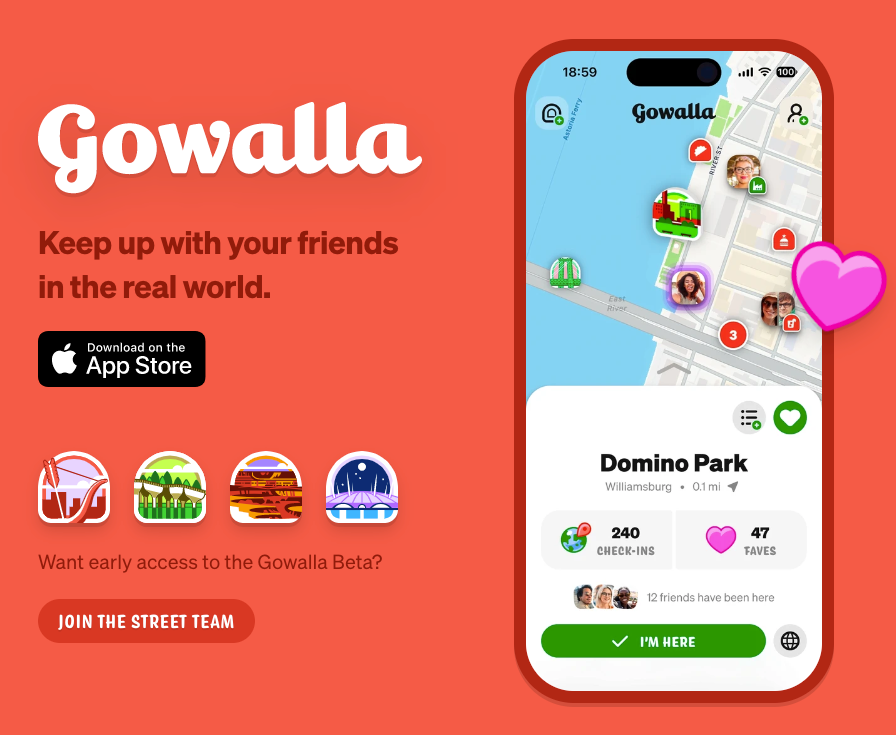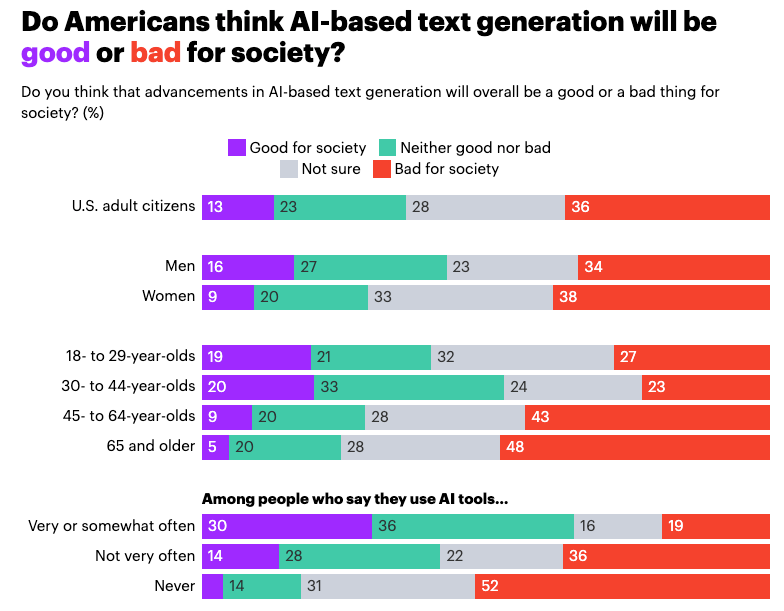GoWalla Comeback, AI Ambivelance, Digital Twins

GoWalla Take Two
Local social networking (or social cityguide) app GoWalla is back. GoWalla was originally Foursquare's primary competitor. Both launched in 2009. Foursquare survives today, albeit in very different form: the company is mostly a B2B location-intelligence vendor. With about 20% of Foursquare's users, GoWalla sold itself to Facebook in 2011 and was shut down in 2012. Original GoWalla founder and CEO Josh Williams has returned with a new version of the app. It looks and functions in a way that's very similar to its earlier incarnation. TechCrunch features a partial interview with Williams about why things are different now and why GoWalla has a better shot at success today. Among the reasons: more and better smartphones, lessons from mobile gaming, conditioning based on Apple's Find My (Friends), the success of the now-defunct Zenly (shuttered by Snap) and more business model options.

Our take:
- One investor insisted that the timing was better now vs. 14 years ago. Maybe but not necessarily.
- Gen Z internet users might take to it. But location/privacy issues, which didn't really exist in 2009 - 2011, could hold back adoption.
- It feels at once fresh and anachronistic. And despite an "elite squad" strategy, GoWalla has a content "cold start problem."
Public's AI Ambivalence
The AI rollout is picking up steam. GPT-4 will be released by Microsoft as early as next week. It will reportedly be multimodal and able to generate images, text and video, which are currently separate functions. A February survey of ~1K US adults from Appinio found roughly 70% of respondents had heard of ChatGPT and 33% were "very familiar" with it. Those who'd actually used ChatGPT had a strongly positive reaction. But two other surveys, from Pew in December, 2022 (~11K adults) and YouGov in January (~1K adults), found more ambivalence. The Pew survey discovered only 15% were more excited about AI than concerned; the rest expressed varying levels of concern. The YouGov survey found only 13% thought AI would be "good for society," while 36% had a negative reaction (others in the middle). People who said they had used AI tools were more sanguine; 30% said it would be good for society. That's still a minority, however.

Our take:
- Despite ChatGPT's claimed 100 million users, most people have yet to try AI, though many have a sense it's increasingly behind the scenes.
- Notions of AI have been shaped, rightly or wrongly, by dystopian sci-fi. AI causes fear and uncertainty around jobs, for example.
- AI is here. We need to make the best of it but be vigilant about bad outcomes and bias. Fear shouldn't be our dominant lens.
Digital Twin Shopping
There's a perception that Facebook is in decline. In response, Facebook recently said, "Facebook is not dead nor dying, but ... thriving with 2 billion daily active users." In the same post, the company discusses the year ahead but doesn't ever say "metaverse." Its absence is striking. The company has publicly pivoted to AI, which is hot; the metaverse is not. What might renew interest is digital twin (DT) shopping: digital replicas of IRL store environments. While digital twinning presents multiple use cases (e.g., planning, design, education), shopping is a major one. The creation of photorealistic digital store environments that mirror offline locations is potentially compelling. In the early days of Google Earth, this was contemplated but not feasible. Now it can be done and would allow a mixing of digital and offline experiences in totally new ways (see video). Online shopping might be completely revolutionized through VR/AR and DT.
Our take:
- VR and AR are helping make online shopping more "tactile." DT would take it further and help overcome current limitations of e-commerce.
- Imagine one person in an IRL store and another in a digital twin store. The two could interact around the same products, which also presupposes real-time inventory awareness.
- Social networking could be built around these experiences. Shopping is but one DT application mixing the physical and online worlds.
Recent Analysis
- Near Memo episode 104: Google LSAs' new categories, ChatGPT changing local SaaS, Everyone needs an AI ethics disclosure.
Short Takes
- SVB had lots of problems, but fear, social media sealed its demise.
- Google tests showing multiple featured snippets at once.
- Duplicate content service-area pages perform very well.
- You can replace OG Siri on the iPhone with a ChatGPT-powered version.
- Apple suffering "unprecedented" turnover among senior executives.
- Pixel watch jumps to second place in wearables market after Apple.
- Time spent on TikTok "dwarfs" other networks, including by older users.
- Amazon drone delivery business hampered by weak demand.
- Meta to no longer pay creators for short form video content.
- Estimated average yearly Google Ads spending: $1,311,768
- Amazon's Ring gives your camera data to police without a fight.
- Study: women's roles and portrayals regressing in ad campaigns.
Listen to our latest podcast.

How can we make this better? Email us with suggestions and recommendations.

